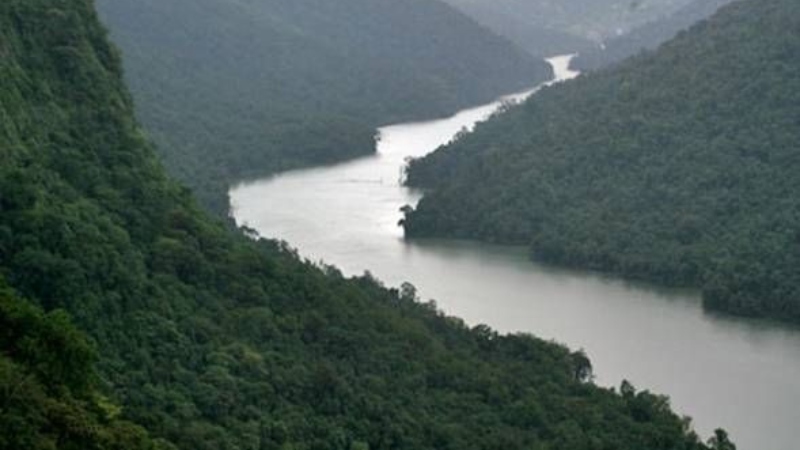
Amidst enduring water scarcity crisis, BWSSB eyes Sharavathi River
An expert panel has assessed feasibility of the project
It requires piping Sharavathi water from Linganamakki to Bengaluru
Amidst an enduring water scarcity crisis, the Bangalore Water Supply and Sewerage Board (BWSSB) is eyeing the Sharavathi River as a potential solution, proposing the extraction of 15 TMC (thousand million cubic feet) of water.
Rapid urban expansion in Bengaluru has escalated the demand for drinking water, prompting the exploration of alternatives like tapping into the Sharavathi River located 360 km away.
BWSSB Chairman Ram Prasath Manohar V reportedly emphasized the urgency of addressing the city’s water needs and highlighted the potential extraction from both the Yettinahole and Sharavathi sources to meet the demand until 2035. An expert panel, headed by former BWSSB Chief BN Tyagaraj, has assessed the feasibility of piping Sharavathi water from Linganamakki to Bengaluru, with a detailed project report in the works.
Despite supplying 1,450 MLD (million liters per day) to Bengaluru, a daily shortage of 350 to 450 MLD persists. The proposal to extract water from Sharavathi comes as an addition to other measures, such as the controversial Yettinahole Integrated Drinking Water Project and the consideration of obtaining 12 TMC ft of water from the Krishna River. However, these initiatives face criticism from environmentalists, who express concerns about impacts on power generation and biodiversity.
Implementation of such projects, whether involving Sharavathi or Hemavathi, presents logistical challenges. The long-distance water transfer necessitates multiple water lines, potentially traversing forest areas, raising issues with the central forest ministry and potential legal obstacles from environmental advocates aiming to halt the project over biodiversity concerns.

Amidst enduring water scarcity crisis, BWSSB eyes Sharavathi River
An expert panel has assessed feasibility of the project
It requires piping Sharavathi water from Linganamakki to Bengaluru
Amidst an enduring water scarcity crisis, the Bangalore Water Supply and Sewerage Board (BWSSB) is eyeing the Sharavathi River as a potential solution, proposing the extraction of 15 TMC (thousand million cubic feet) of water.
Rapid urban expansion in Bengaluru has escalated the demand for drinking water, prompting the exploration of alternatives like tapping into the Sharavathi River located 360 km away.
BWSSB Chairman Ram Prasath Manohar V reportedly emphasized the urgency of addressing the city’s water needs and highlighted the potential extraction from both the Yettinahole and Sharavathi sources to meet the demand until 2035. An expert panel, headed by former BWSSB Chief BN Tyagaraj, has assessed the feasibility of piping Sharavathi water from Linganamakki to Bengaluru, with a detailed project report in the works.
Despite supplying 1,450 MLD (million liters per day) to Bengaluru, a daily shortage of 350 to 450 MLD persists. The proposal to extract water from Sharavathi comes as an addition to other measures, such as the controversial Yettinahole Integrated Drinking Water Project and the consideration of obtaining 12 TMC ft of water from the Krishna River. However, these initiatives face criticism from environmentalists, who express concerns about impacts on power generation and biodiversity.
Implementation of such projects, whether involving Sharavathi or Hemavathi, presents logistical challenges. The long-distance water transfer necessitates multiple water lines, potentially traversing forest areas, raising issues with the central forest ministry and potential legal obstacles from environmental advocates aiming to halt the project over biodiversity concerns.
